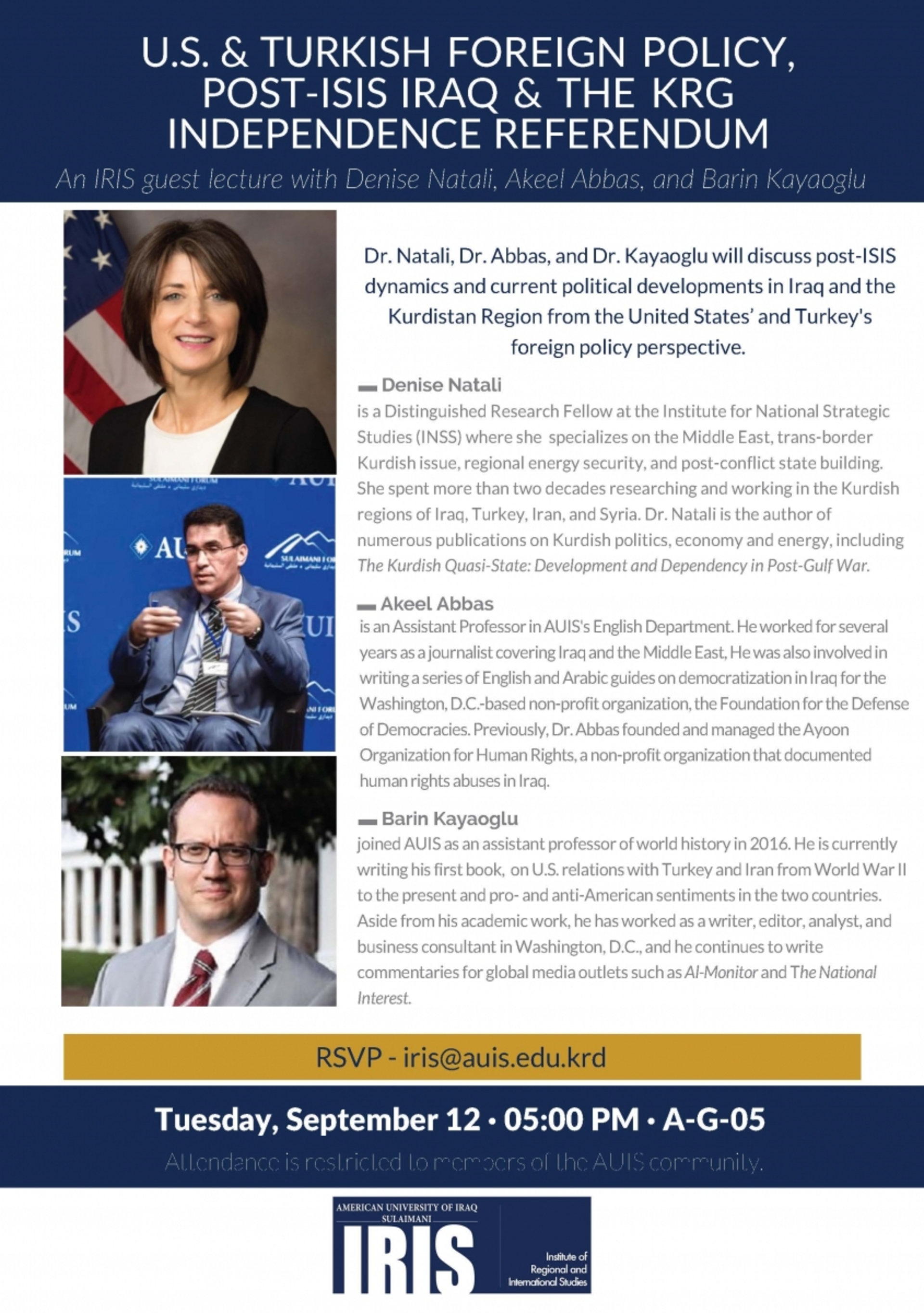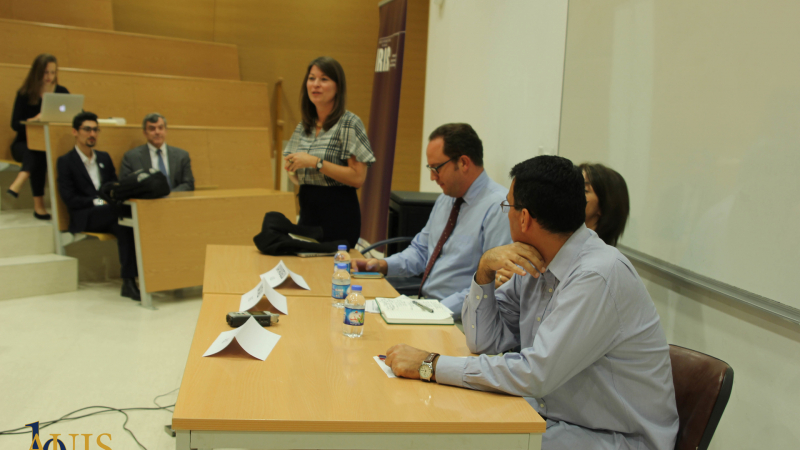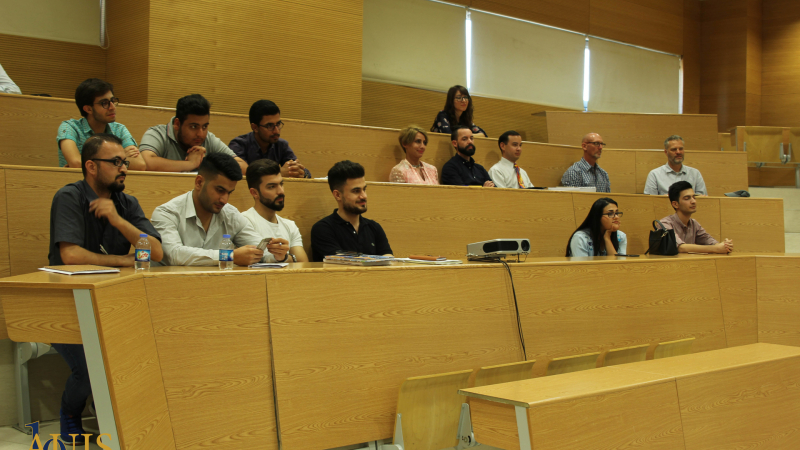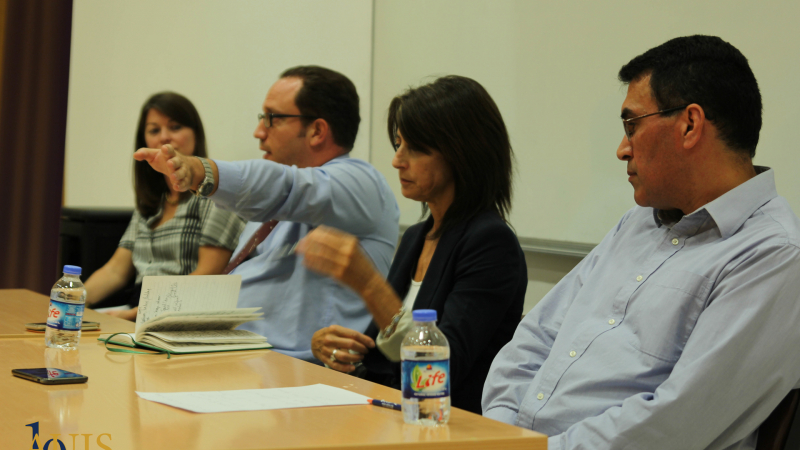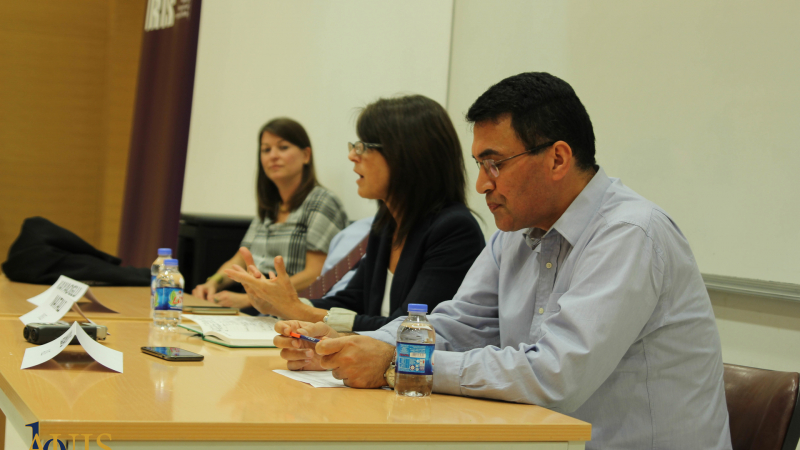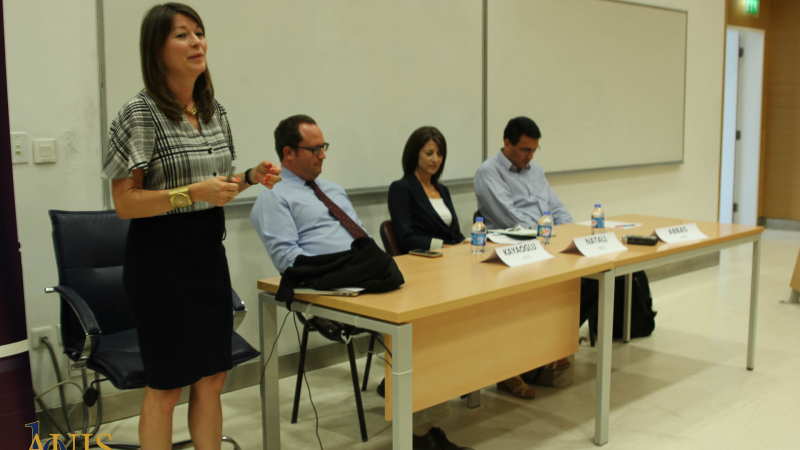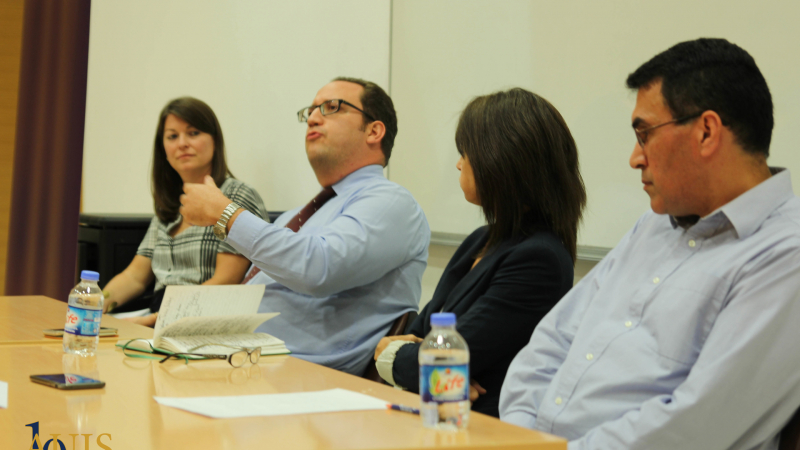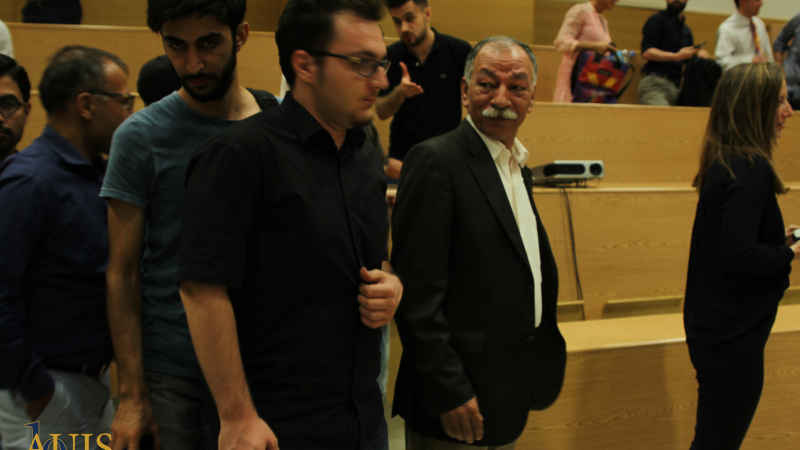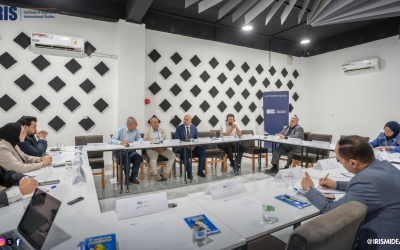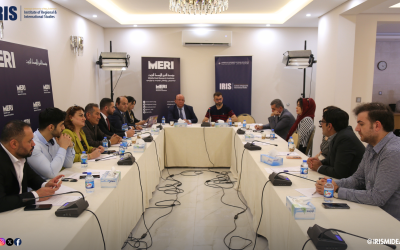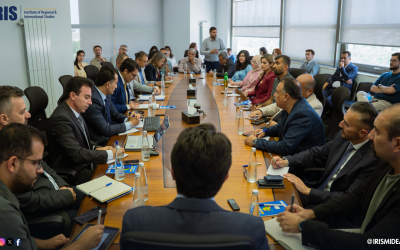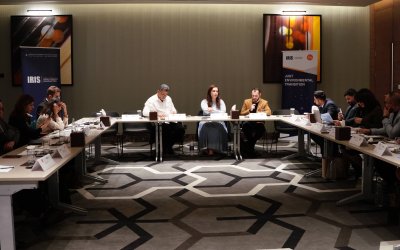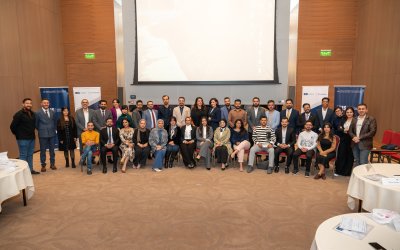On September 12, 2017, IRIS hosted a guest lecture on foreign policy perspectives of the Kurdistan Regional Government (KRG) referendum for independence. Speakers included Dr. Denise Natali, Distinguished Research Fellow at the Institute for National Strategic Studies (INSS) at the National Defense University (NDU), Dr. Akeel Abbas, Assistant Professor in the Department of English at AUIS, and Dr. Barin Kayaoglu, Assistant Professor in the Department of Social Sciences at AUIS.
Natali opened the discussion with a presentation of the United States’ strategic priorities –China, Russia, North Korea, Iran, and violent extremism –and contextualized its foreign policy vis-à-vis Iraq and the KRG in light of those. “The current Administration looks at the Middle East region through the lens of counter-terrorism and post-conflict stabilization,” she remarked. Highlighting the strategic importance of the KRG as a security partner of the United States and vector of stability within a unified Iraq, Natali suggested that the upcoming referendum on independence would be viewed as an internal issue for which the United States would not offer support.
Kayaoglu then moved to present his analysis of the Turkish government’s policy on the issue. Geographically, he started, Turkey currently is the KRG’s and Iraq’s only opening to north-western markets. This however does not mean that Turkey can afford to alienate the KRG, he continued: the KRG is an essential market for Turkish products, generating billions of dollars in trade revenue annually. In this context, Kayaoglu described Ankara’s policy in the short run as one of “wait and see,” claiming that it had no interest in creating more instability on its southern border. In the medium run, however, it could change dramatically should the KRG act to implement the referendum’s result unilaterally. If the situation in the Kurdistan Region of Iraq (KRI) was to become a tool for political power blocks to challenge President Erdogan domestically, Turkey could be forced to adopt a very strong anti-KRG, anti-Kurdish independence foreign policy, he concluded.
Moving to Government of Iraq’s (GOI) position on the referendum, Abbas recounted the recent history of the alliance between Shi’a Islamist political parties –now forming the majority of the government in Baghdad –and Kurdish political parties. From an alliance in exile in the 1970s to counter-terrorism partners in the 2000s, their relation has always been one of “convenience,” Abbas argued, not of intrinsically shared interests and values. Only recently, since the start of the budgetary disputes in 2012, has it however started to truly deteriorate. In this context, Baghdad has adopted a policy of “official indifference” vis-à-vis the referendum. But in reality, Abbas claimed, the uncertainty as to what the consequences of a “yes vote” would be is a real source of worry. Baghdad, he continued, currently hopes that external forces –pressure from the US, Europe, or Iran –and unresolved territorial disputes will prevent the KRG from unilaterally moving forward with independence. “There is still a remarkable lack of pragmatism in politics across the board,” Abbas concluded.
Answering questions from AUIS students and alumni in the audience, the three speakers touched upon the questions of Russia, oil, and the KRG’s strategic value. Russia, it was argued, is unlikely to play any role in supporting Kurdish independence. While it has some economic interests in the region –natural gas, mostly –it remains a staunch supporter of non-intervention in states’ domestic affairs and has consistently blocked attempts by the international community to support secessionist movements.
On the issue of oil exploitation, Natali highlighted the fact that many of Iraq’s oil reserves are currently being depleted. She also recalled the KRG’s many on-going disputes with international oil companies. In this context, she argued, the area has become both inhospitable and decreasingly profitable for large foreign oil companies, which are now switching their focus to untapped reserves in Latin America and Australia. It is unlikely that the U.S. would intervene in favour of the referendum merely to support the commercial activities of American oil companies.
Finally, touching on the question of the KRG’s strategic value to the U.S. and other international allies, the speakers reiterated the importance of the Kurds as an ally within a united Iraq. There would not be outright support for Kurdish independence, particularly if it is not negotiated with the federal government of Iraq. U.S. support to date, for example, has been dependent on continued relations between Erbil and Baghdad. In the long run, it was also argued, the KRG is likely to remain a key partner of the United States in the region, as long as it was on good terms with Baghdad.
